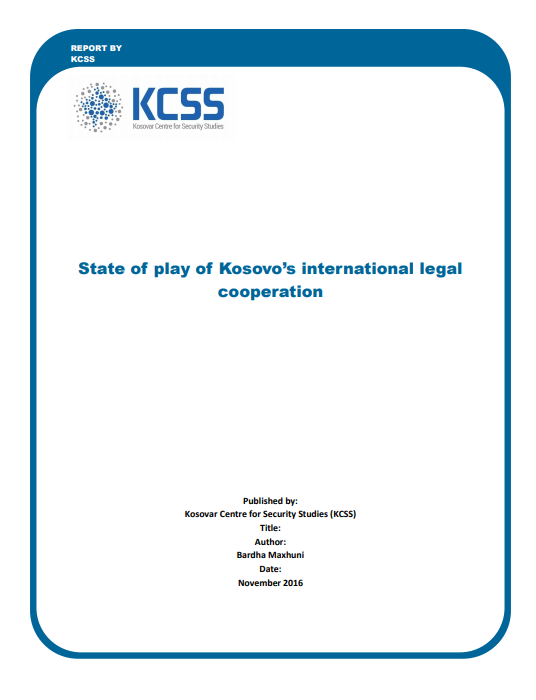25/11/2016

In the globalizing world that we are living, international legal cooperation in criminal matters is an inevitable and necessary instrument in order to prevent and combat transnational crime, which poses serious problems for national security and justice system. Crime affects each one of us, and fighting it must be a shared goal for all countries despite their political differences and relations between each other. In the current circumstances, the process of extradition, mutual legal assistance, transfer of criminal proceedings, execution of foreign sentences, recognition of foreign criminal judgments, confiscation of the proceeds from crime, collection and exchange of information, between intelligence and law enforcement services, is an imminent need in the fight against criminality.
Kosovo has little experience in this international legal cooperation in criminal matters, however due to postconflict and post-independence transitions, there were number of crimes committed in Kosovo. Lack of a contractual relationship with EU and large international organizations such as INTERPOL and EUROPOL, prevents Kosovo to have effective collaboration with other countries. In order for Kosovo to bring before justice all those who wronged and undermined social values, an intensive international legal cooperation is desperately needed.
The first section of this paper, attempts to analyze whether agreements concluded by Socialist Federal Republic of Yugoslavia (SFRY) with other countries and agreements concluded by United Nations Interim Award (UNMIK) period can be succeeded, since with the Declaration of Independence on 2008, Kosovo has agreed to undertake obligations arising from these agreements.
The second part of this paper will try to identify what has been done so far by Kosovo’s institutions to further international legal cooperation in matters: the scope and number of bilateral agreements reached in this field, by analyzing factors have affected this process. It will focus on agreements with countries that has recognized the independence of Kosovo as well as will analyze a cases of with the ones that have not recognized it yet. The cases presented will provide a depth analysis on how international legal cooperation takes place, whether or no Kosovo has bilateral agreements with these countries.